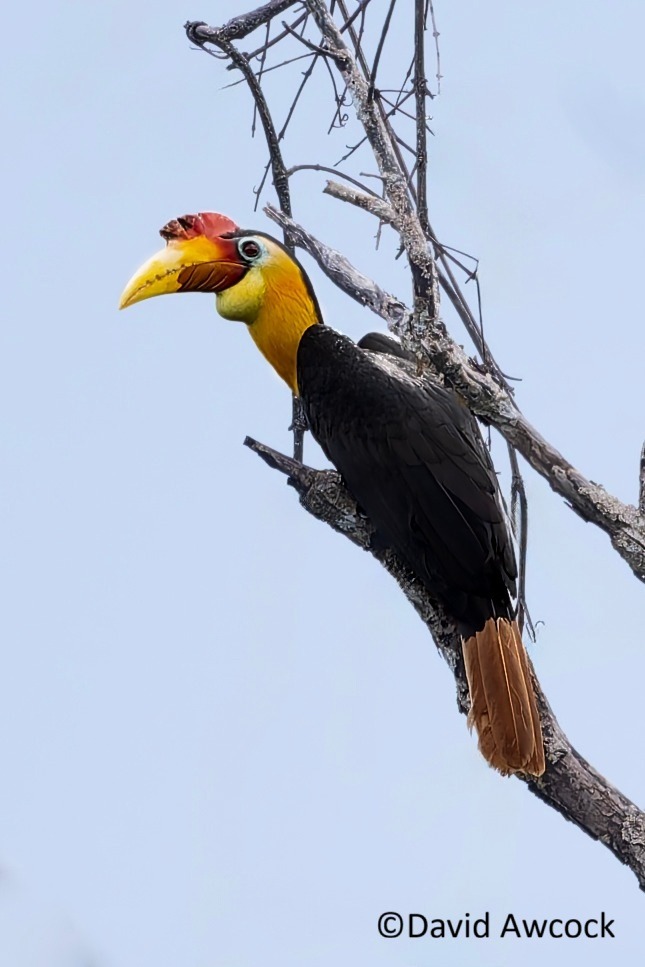PPRP renews its commitment to restore Malaysia’s peatland forests — the natural home of the hornbill

Pekan, 10 Nov 2025 – As Malaysia celebrates National Hornbill Day (10th November), Enggang Group of companies joins the nation in honouring this iconic species; a powerful symbol of the country’s rich biodiversity and ecological heritage.
Enggang (Pekan) Sdn Bhd operates the Pahang Peatland Restoration Project (PPRP). Located in the heart of Southeast Pahang, the PPRP area remains a thriving habitat for numerous bird species, including the Wrinkled Hornbill (Enggang Berkedut) (Rhabdotorrhinus corrugatus), an endangered species commonly sighted within the project zone. The presence of hornbills and other forest birds is a positive indicator of ecosystem health and the success of ongoing restoration work. Eight of the ten hornbill species found in Malaysia have been sighted in the project area.
Peatlands are among Malaysia’s most important yet most threatened ecosystems; storing vast amounts of carbon, regulating water flows, and supporting rare wildlife found nowhere else. Their protection is vital not only for the hornbill’s survival but also for Malaysia’s broader climate and biodiversity goals.

“The hornbill is more than a bird; it is a living symbol of our forests’ health. By restoring peatlands, we’re protecting the hornbill’s home, reviving biodiversity, and strengthening Malaysia’s natural defences against climate change,” said Dr Jane Koh, Project Lead of PPRP.
The PPRP is committed to restoring over 96,000 hectares of tropical peat swamp forest; one of Malaysia’s most critical ecosystems for carbon storage, flood regulation, and wildlife protection.
This restoration effort is made possible through close collaboration with the Pahang State Government, local authorities, and 11 Orang Asli Jakun communities who live around the forest and actively participate in peatland rehabilitation and conservation.
“The Southeast Pahang peatland is home to extraordinary biodiversity, and the hornbill is one of its proudest symbols. Our work is about more than just restoring the forest; it’s about protecting habitats, supporting communities, and ensuring that Malaysia’s natural heritage continues to thrive,” Koh added.
Through continuous camera-trap and bird-survey monitoring, the PPRP’s Biodiversity Monitoring Plan provides data to track species presence and conserve existing wildlife populations, while guiding habitat rehabilitation efforts.
The success of these restoration efforts has drawn international attention, reinforcing Malaysia’s growing reputation for nature-based, high-integrity climate action among others by the International Union for Conservation of Nature (IUCN), through its WALD Innovation Facility in October 2025, recognised the PPRP as one of six Global Flagship Carbon Projects worldwide.
This global distinction highlights Malaysia’s leadership in linking biodiversity conservation with community-driven restoration, proving that local efforts, when grounded in science and integrity, can contribute to global environmental goals.
“The IUCN recognition strengthens and validates the idea that Malaysia’s conservation model; one that combines ecological restoration with social inclusion, can inspire similar efforts across the region,” she explained.
As we honour the species that Malaysia home, PPRP calls on all Malaysians to play their part in conservation by protecting forests, reporting wildlife crimes, and avoiding illegal wildlife products.
“Protecting the hornbill means protecting the entire forest ecosystem and together, we can ensure the hornbill continues to soar across Malaysia’s skies,” Koh stated.
